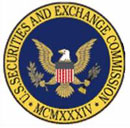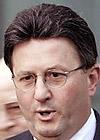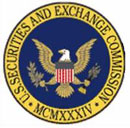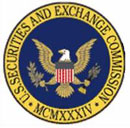|
|
|
SEC sides with investors in high court case
Securities |
2007/06/04 09:43
|
| The Securities and Exchange Commission is recommending that the U.S. solicitor general's office advocate a position taken by investors on the question of whether shareholders can file lawsuits against third parties for the actions of the shareholders' company, the Journal said, citing people familiar with the matter. An SEC spokesman had no comment on Monday morning. The recommendation comes as concerns have arisen in recent weeks about the agency's commitment to investor protection. The third-party question comes in a case before the Supreme Court. The high court is reviewing whether vendors that did business with Charter Communications Inc. (CHTRcharter communications inc (CHTR) can be held liable for allegedly helping the company inflate its financial results. Meanwhile, high-profile plaintiffs lawyer William Lerach is asking the Supreme Court to review a case that involves investment bankers who worked with Enron Corp. He is alleging that several Wall Street firms should be held liable for Enron's accounting fraud because they financed transactions Enron used to inflate its financial results
|
|
|
|
|
|
|
Scrushy Settles SEC Lawsuit for $81M
Securities |
2007/04/24 09:09
|
| The US Securities and Exchange Commission has settled accounting fraud charges against HealthSouth founder and former CEO Richard Scrushy under an agreement announced Monday "that permanently bars Scrushy from serving as an officer or director of a public company, permanently enjoins Scrushy from committing future violations of the antifraud and other provisions of the federal securities laws, and requires Scrushy to pay $81 million in disgorgement and civil penalties." According to the SEC's press release: The Commission's complaint in this action charges Scrushy with directing a $2.6 billion financial fraud at the HealthSouth Corporation during the years 1996 through 2002.... The Complaint alleges that, at Scrushy's direction, HealthSouth's overstated its revenue by more than $2.6 billion from the second quarter of 1996 through the third quarter of 2002. This overstatement led directly to quarterly and annual overstatements of net income and retained earnings. The Commission's complaint charges that, by the end of 2002, HealthSouth was claiming to have over $1.5 billion in accumulated retained earnings, when in fact the Company had operated at a significant loss over its entire corporate history. The HealthSouth fraud resulted in one of the largest accounting restatements in American corporate history. Scrushy was acquitted in 2005 on criminal charges of wire and mail fraud, money laundering, conspiracy, and violations of the Sarbanes-Oxley Act for his role in overstating HealthSouth's earnings. He was, however, convicted last year on federal bribery and fraud charges for paying campaign debts of former Alabama Governor Don Siegelman in exchange for a seat on a state-operated review board that regulates Alabama hospitals. Siegelman was also convicted in that case and both could face up to 30 years in prison. |
|
|
|
|
|
|
Qwest's Nacchio Guilty of Insider Trading
Securities |
2007/04/23 09:22
|
Former Qwest Communications chief executive Joseph Nacchio was found guilty last week on 19 of 42 counts of insider trading. Nacchio will remain free on a $2 million bond, pending an appeal. The guilty counts revolve around the ex-CEO’s sale of $52 million in Qwest shares from April 26 to May 29, 2001. He had been accused of selling more than $100 million worth of Qwest stock in the first few months of 2001, even while knowing that the company could not meet the ambitious sales and earnings targets he had set. A federal investigation found that Qwest falsely reported sales as recurring revenue between April 1999 and March 2002 to meet those targets; in the process, the company improperly reported $3 billion in revenues. The government chose to accuse Nacchio only of insider trading, rather than get into the more complicated issues surrounding the company's accounting. Nacchio still faces a civil suit in connection with the insider-trading case. Nacchio is scheduled to be sentenced on July 27. The convictions carry a maximum penalty of 10 years in prison and $1 million in fines for each of the 19 counts. |
|
|
|
|
|
|
Former Qwest CEO Nacchio is guilty on 19 counts
Securities |
2007/04/20 08:30
|
| Former Qwest Communications CEO Joseph Nacchio was convicted Thursday by a federal jury on 19 of 42 counts of insider trading. Nacchio illegally sold 1.33 million shares valued at $52 million dollars in conjunction with the Denver-based telephone service provider's account scandal between April 26 and May 29, 2001. Nacchio faces a maximum sentence for each count of up to 10 years in prison and a $1 million fine. The federal jury acquitted Nacchio of 23 counts of insider trading originating before April 2001. Nacchio's sentencing is slated for July 27, and he is currently free on $2 million bail. Nacchio and other former Qwest executives still face a class action lawsuit and civil charges brought by the Security and Exchange Commission. Another former Qwest employee, ex-Vice President Marc Weisberg, pleaded guilty to wire fraud in December 2005 and helped prosecutors build their case against Nacchio. |
|
|
|
|
|
|
SEC action alleges Spear & Jackson stock scheme
Securities |
2007/04/11 07:58
|
| U.S. securities regulators have started enforcement proceedings against a broker-dealer and its principal accused of helping inflate the price of tool maker Spear & Jackson Inc.'s (SJCK.PK: Quote, Profile, Research) shares and executing orders to sell them. The Securities and Exchange Commission said the proceedings would determine what remedial actions, such as civil penalties, are appropriate against Winter Park, Florida-based broker-dealer Park Financial Group Inc. and its principal, Gordon Cantley. Spear & Jackson's former chief executive, Dennis Crowley, has already settled with the SEC in a related fraud case, agreeing to pay more than $6.1 million. Lawyers for Park and Cantley did not immediately return phone calls seeking comment. Spear & Jackson manufactures and distributes hand tools, lawn and garden tools, industrial magnets and meteorology tools. The SEC said that between February 2002 and July 2003, Park and Cantley executed numerous trades in Spear & Jackson stock, despite obvious red flags. Proceeds from the trades were about $2.5 million. On several occasions, former CEO Crowley gave Park and Cantley sell orders on Spear & Jackson stock for three British Virgin Islands companies that he secretly controlled, the SEC said. The SEC said Park and Cantley filled the orders knowing that Crowley was the CEO of Spear & Jackson and that the British Virgin Islands companies' accounts traded only in the stock, often buying and selling shares on a daily basis.
|
|
|
|
|
|
|
Wal-Mart Loses SEC Appeal
Securities |
2007/04/10 09:02
|
Wal-Mart Stores Inc. has lost its bid with the U.S. Securities Exchange Commission to not submit a shareholder proposal at this year’s annual shareholders meeting. The National Legal and Policy Center said Tuesday it had been notified by the SEC that Wal-Mart will be required to submit an NLPC-sponsored proposal asking the company to disclose its charitable giving. Wal-Mart had appealed to the SEC to exclude the resolution but was denied. The National Legal and Policy Center said it is critical of Wal-Mart in four areas: health care, racial preferences, environmental alarmism and culture wars. Wal-Mart Vice President and corporate general counsel Jeffrey Gearhart reportedly phoned the Policy Center on April 4 to “apologize” in the wake of a Wall Street Journal article that reported that some shareholder groups were possible targets of Wal-Mart’s security unit. Wal-Mart’s shareholders meeting will take place June 1 in Fayetteville. |
|
|
|
|
|
|
SEC vows to settle stock symbol clash
Securities |
2007/04/06 09:52
|
| The U.S. Securities and Exchange Commission has received competing proposals on allocating stock symbols, with the New York Stock Exchange wanting to guard shorter stock identifiers from being used by Nasdaq-listed companies. The SEC said yesterday it will work to resolve conflicts between the proposals over the issue of symbols with three or fewer characters. The NYSE and other exchanges are pushing to limit the use of one-, two-and three-character symbols to those listing markets that have traditionally used them. Nasdaq and other self-regulatory organizations are trying to permit any listing market to use one-, two-, three-, four- or five-character symbols, allowing companies to move their securities onto the Nasdaq while retaining their ticker symbols. The SEC said it plans to publish the proposals for comment and "will resolve the conflicts ... as fairly and expeditiously as possible." A spokesperson did not know when the issue would be decided. The investor protection agency asked the exchanges in February 2005 to work together to develop a national plan for reserving, selecting and allocating securities symbols. "Securities symbols are an important part of a listed company's identity and developing a formal process to reserve, select and allocate symbols ... will help promote a fair and orderly national market system and prevent investor confusion," said SEC Market Regulation Director Eric Sirri. Following the SEC request to formalize the symbol allocation system, Nasdaq announced its intention to begin listing companies with three or less symbols. Last month, Delta Financial Corp. became the first company to trade on the Nasdaq with a three-character symbol – DFC – after a proposal to list that specific company was approved. Nasdaq moved a step further with a March 29 proposal to the SEC that would explicitly permit the display of three-character symbols on its exchange. The SEC will consider the proposal after the public comment period ends April 25. |
|
|
|
|
|
|
Class action or a representative action is a form of lawsuit in which a large group of people collectively bring a claim to court and/or in which a class of defendants is being sued. This form of collective lawsuit originated in the United States and is still predominantly a U.S. phenomenon, at least the U.S. variant of it. In the United States federal courts, class actions are governed by Federal Rules of Civil Procedure Rule. Since 1938, many states have adopted rules similar to the FRCP. However, some states like California have civil procedure systems which deviate significantly from the federal rules; the California Codes provide for four separate types of class actions. As a result, there are two separate treatises devoted solely to the complex topic of California class actions. Some states, such as Virginia, do not provide for any class actions, while others, such as New York, limit the types of claims that may be brought as class actions. They can construct your law firm a brand new website and help you redesign your existing law firm site to secure your place in the internet. |
Law Firm Directory
|
|









